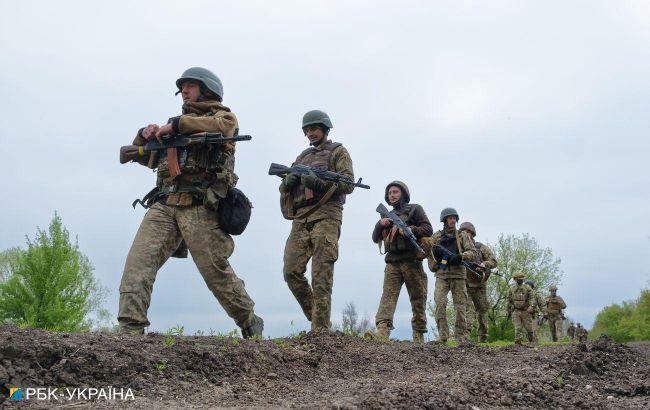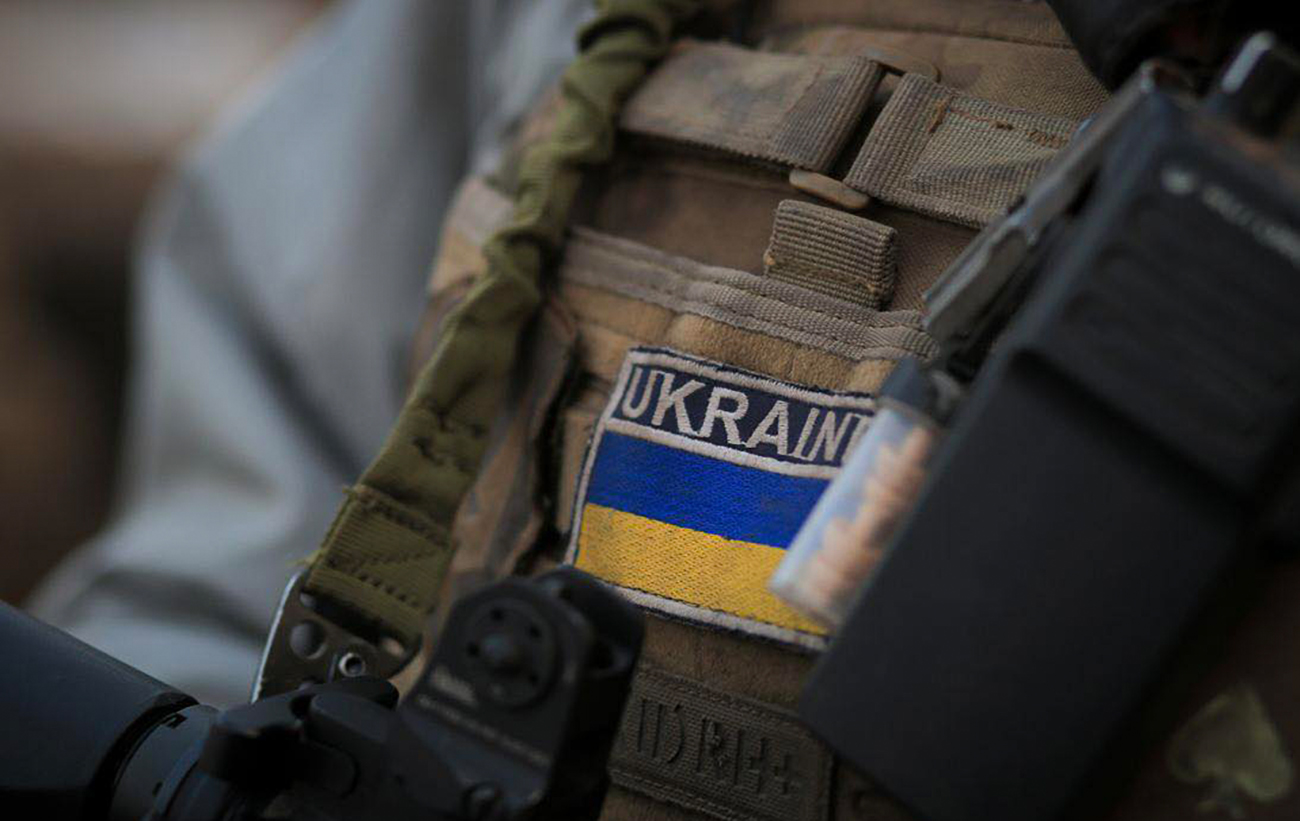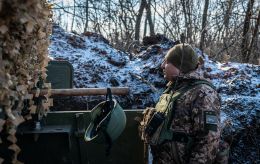'Are you ready to welcome us back?' Stories of war veterans
 Soldiers returning back home (Photo: Vitalii Nosach, RBC-Ukraine)
Soldiers returning back home (Photo: Vitalii Nosach, RBC-Ukraine)
While a brutal war continues in the country, the fighting part of the society remains mentally on the front lines even after returning to the rear. The family and society play a crucial role in the adaptation of military personnel, as they are ready to receive them. What do soldiers feel after returning and what do they expect from society?
Night. In a sudden jolt, the sound of an explosion shatters the tranquility, jolting soldiers awake as they scramble to find the impact point. Shattered windows and a neighboring building without a roof bear witness to the destructive force. Two comrades, "Rosa" and "Zaliznyi," who were resting after returning from a mission, are no more. They had been eagerly discussing their plans to enjoy a "festive dish" of sushi in Kramatorsk the next day. Today, their loved ones are receiving the horrifying news. A tragic day for the brigade.
This night replays in their minds, painting new details of the event. The thought lingers: it could have been others in place of "Rosa" and "Zaliznyi." This idea never leaves. Sleep becomes restless, and reactions to loud noises intensify. The state of "ready for battle" persists, with a constant sense of looming threat. It is a common phenomenon for soldiers in a combat zone, but not in peaceful life, where a thunderclap with lightning should be enough to return to the frontlines.
Post-Traumatic Stress Disorder (PTSD) is a prevalent psychological condition among Ukrainians in times of war. It can affect both active-duty personnel, who frequently encounter danger and civilians who have experienced rocket attacks, occupation, or captivity - leaving lasting scars attributed to the Russians. However, the crucial and perhaps most important aspect of PTSD is an accurate diagnosis by a specialist and consultation.
PTSD is often attributed to anyone. However, it carries specific symptoms that require seeking medical attention. Specialists establish the diagnosis and begin working not only with the affected individuals but also with their loved ones. The treatment or even alleviation of PTSD depends on self-understanding, family support, and the surrounding environment. Ukrainian society must prepare for the return of its defenders and, most importantly, welcome these returns, considering the altered worldview of the soldiers.
"I'm in a peaceful city, but my mind is still on the frontlines."
On the front, there is a sense of camaraderie and a shared mission: you operate under the same conditions and fulfill tasks. It is clear who the enemy is and who your ally is, shares serviceman Heorhii, who returned from the combat zone after being wounded. While undergoing rehabilitation in a peaceful city, he talks about living between two realities: war and the rear.
"Civilian life is far detached from war. Everything remains the same as before the full-scale conflict: people live, stroll, and rejoice, while we are at war... We are essentially fighting for this. However, it is a bit challenging for them to understand us because they don't see life through our eyes," he shared.
Among the military, a belief has emerged that the February spirit of the society, when Ukrainians were ready to carry soldiers on their shoulders, has dissipated. They feel that despite the intense battles on the frontlines, people are becoming desensitized to the war, perceiving it through the screens of their gadgets like a reality show, occasionally observing missile flights over peaceful territory.

Soldiers returning home (Photo: Getty Images)
Fewer and fewer people are attending farewell ceremonies for fallen soldiers, Heorhii observes. Meanwhile, social media is filled with news of mass festivities at resorts, further fueling misunderstandings. The memory of their fallen comrades is crucial for each soldier, and they expect society to understand the value of this sacrifice.
After physical rehabilitation, Heorhii began his journey of "return" on the psychological front. He brought back sleep problems and anxiety from the battlefield. He can suddenly freeze in a crowd or become more observant of passersby, uncomfortable with the noise and loud music. Some people have distanced themselves because he might have an emotional reaction to discussions about war or political news. The soldier has become withdrawn, thinking that nobody will understand.
"I'm currently working with a specialist to process the experiences so that I can sleep peacefully. Because I'm here, but my mind is still there, somewhere on the frontlines. Conversations are helping a bit. We go back to the combat moments and analyze the details of what happened and what was done right," he explained.
According to Anton Semenov, a therapist, and co-author of the book "How Are You?", soldiers return with a complex experience that is usually not fully processed. This diminishes their ability to adapt, but at the same time, they face the great challenge of adapting to civilian life.
"The problem lies in the fact that on one hand, they need to finally reflect on their experience, and on the other hand, they need to adapt to new circumstances, relationships, orders, and a new way of organizing life," he noted in a comment to RBC-Ukraine.
"I'm learning to listen and accept my husband."
Oleksandr, a reconnaissance officer who was injured in combat near Lyman, spent some time in a military hospital, an environment somewhere between the "front and the rear." The main confrontation with the old-new reality occurred after his discharge.
"I have a hard time dealing with shouting and loud music. When a motorcycle passes by, that sound takes me back to the front. I immediately react, feeling the need to protect myself," he explained.
His wife plays a key role in his return by "trying to accept the new Oleksandr, the one who went through hell." She doesn't ask him about what happened there but listens to everything he's willing to share. She says that initially, she discussed this topic with a psychologist who advised her not to push her husband and to be patient.
"Yes, it's important to me that Oleksnadr is alive. That he's here with me now. I understand that we are rediscovering each other. For example, he wants to be more silent, or he has his reaction to certain sounds or questions from friends who are interested in 'what's happening on the front.' He's getting used to our life. At this moment, I just want to be by his side and go through this journey together," the woman shared.
 Soldier in combat (Photo: Getty Images)
Soldier in combat (Photo: Getty Images)
Questions about a "swift offensive" or the number of Russians killed are considered the most inappropriate for veterans. They have just escaped from those conditions, and they need to rest from them. These questions bring them back. The person relives those feelings, returning to a stressful situation.
Subconsciously, soldiers hope that in civilian life, they will be understood just as they were among their comrades. But they encounter the opposite, which is why over time, they want to distance themselves from everyone and return "to where they are understood" as quickly as possible.
As explained by an expert, from a psychological standpoint, veterans require relationships and warm, friendly attitudes upon their return. Only a society that supports and understands their values can provide this.
"I believe, and world experience supports this view, that the state should focus on medical and financial assistance, as well as physical rehabilitation. However, the psychological support for veterans should be taken on by all of us, every Ukrainian," says Semenov.
The full-scale invasion in 2022 united citizens against the backdrop of external threats and their attitude toward the sole defenders - the soldiers. The situation in cities has stabilized, so society must seek resources to stabilize the condition of returning military personnel.
During their service, soldiers have limited social connections and a restricted planning horizon. After their return, they are constantly required to make numerous small decisions and perform a wide range of tasks simultaneously. This creates additional difficulties for them, on top of those experienced by civilians.
According to psychologists, the state should conduct educational work to explain the challenges and peculiarities of a veteran's adaptation process. Through shared social experience, universal algorithms and principles of such adaptation should be developed and taught, with the aim of mass application. For example, public discussions on the topic of war, creating platforms for showcasing films and photos from the frontlines, lectures, and surveys among military personnel on sensitive points in social life.

Military personnel need the support of society (Photo: facebook.com/NGUmainpage)
Currently, there are military rehabilitation centers that work with soldiers. The state has allocated 540 million hryvnias to implement programs of the Ministry for Veterans Affairs for psychological rehabilitation, professional adaptation, and sanatorium-resort treatment of military personnel.
There is also a Register of providers of psychological rehabilitation services for veterans and their families. Specialists in the field of psychological health who wish to engage in the rehabilitation of military personnel can submit applications online. In addition, the government is preparing a project called "Perekhid" ("Transition"), which envisions creating a system for veterans to transition from military service to civilian life.
The state is working to improve the lives of military personnel in civilian life. The question is whether they are ready to seek help and whether society is willing to participate in such initiatives to at least understand the basic reactions and needs of soldiers after their return.
The words "come back alive" represent more than just a desire to survive. Society must accept the soldiers, giving them a chance to be different, while the state prepares projects for the psychological reintegration of soldiers. They save us every day in the war, now we must save them from this war.

